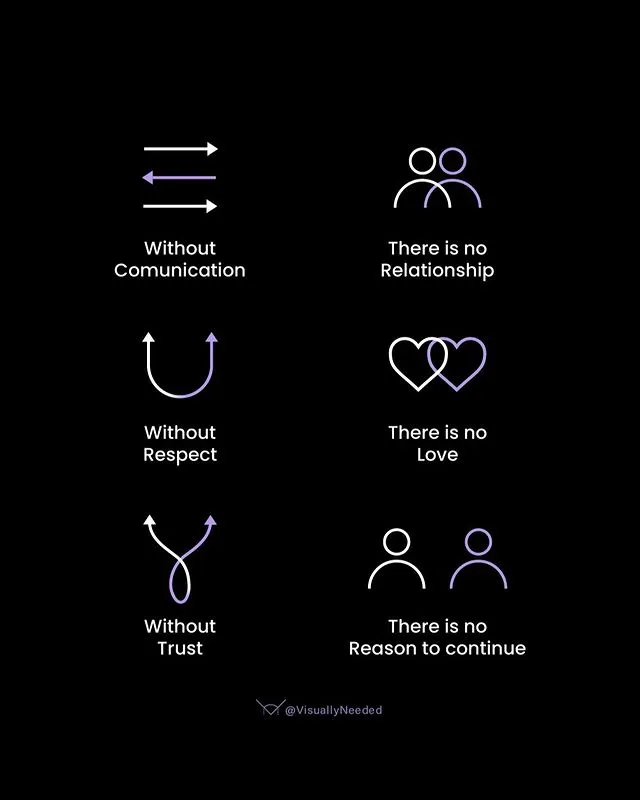- Published on
- ·
Understanding the Root Causes of Your Breakup
Breaking up is never easy. It can be a painful and emotionally draining experience, leaving you wondering what went wrong. In many cases, a relationship may end due to certain behaviors or issues that can significantly harm the bond between partners. In this article, we will take a closer look at some of the biggest relationship killers that can lead to a breakup and what you can do to avoid them in the future. By being aware of these potential relationship killers and making a conscious effort to address and overcome them, you can take steps towards healing and moving on from your past relationship.
1. Neediness
Constantly seeking affection and reassurance from your partner can be overwhelming and even repulsive. It can make your partner feel suffocated and question why they are with someone who lacks self-worth.
2. Insecurity
Insecurities can be a major turn-off, as they reveal a lack of self-confidence and self-respect. Some common insecurities in relationships include constant reliance on the partner, lacking confidence, constantly seeking approval, jealousy and untrusting behavior, and false accusations.
3. Lack of Relationship Knowledge
It's essential to have a good understanding of how to communicate effectively and respectfully with your partner. Without this knowledge, misunderstandings and hurt feelings can easily occur. In addition to reading helpful resources, it's important to practice mindful communication and consider how your words and actions may be received by your partner.
4. Lack of Self-Control
When emotions run high, it can be difficult to maintain logic and reason. This can lead to destructive behaviors such as shouting and throwing things. It's important to find healthy ways to manage and control your emotions, particularly anger, to prevent it from becoming a major relationship killer. Similarly, if you are struggling with depression, it's crucial to seek professional help rather than relying on your partner for support.
5. Money
Money can be a major source of tension and conflict in a relationship, especially when partners have different financial goals or disagree on how to handle shared finances. It's important to be open and honest about your financial priorities and to work together to find a solution that works for both of you.
6. Controlling Behavior
Attempting to control your partner's actions and decisions can be a sign of insecurity and a lack of self-worth. It's important to trust and respect your partner's autonomy and give them the space to make their own choices.
7. Arguments
Resolved and unresolved arguments alike can leave emotional scars that need to be addressed and healed. It's important to find healthy ways to resolve conflicts and to make an effort to have positive experiences and interactions with your partner.
8. Difference in Life Goals
If you and your partner have different long-term goals and visions for the future, it can create tension and conflict in the relationship. It's important to discuss these differences openly and honestly and to find a way to compromise or find common ground.
9. Difference in Core Values
When you and your partner have different fundamental values and beliefs, it can be challenging to find common ground and maintain a strong connection. It's important to have open and honest conversations about these differences and to work together to find ways to respect and appreciate each other's perspectives.
10. Being at Different Points in Life
If you and your partner are at different stages in life – for example, one of you may be ready to settle down and start a family while the other is still focused on career advancement – it can create tension and conflict in the relationship. It's important to discuss these differences and to find a way to support each other's goals and priorities.
By being aware of these potential relationship killers and making a conscious effort to address and overcome them, you and your partner can build a strong and lasting bond.
11. Substance Abuse
Substance abuse can not only be detrimental after your breakup, but it can also have a significant negative impact on a relationship. It can lead to financial, legal, and personal problems that can strain the trust and connection between partners. It can also cause emotional and physical distance, as the person struggling with addiction may prioritize their substance use above their relationship. If you or your partner are struggling with drug abuse, it's important to seek professional help and support to address the issue and work towards recovery.
12. Not Enough Alone Time
It's important for individuals to have time to themselves to recharge and pursue their own interests. However, if one partner is consistently seeking alone time and neglecting their relationship, it can create distance and resentment. It's important to find a balance between spending time together and having time to yourself, and to communicate openly with your partner about your needs and boundaries.
13. Lack of Trust
Trust is a crucial foundation of any healthy relationship. If one or both partners struggle with trust issues, it can be difficult to maintain a strong connection. Trust issues can arise from past experiences, insecurities, or a lack of communication and transparency. It's important to work on building and maintaining trust in a relationship through open and honest communication, being transparent about your actions, and following through on your promises.


Love VS Trust:
- Love is dependent on Trust:
If you don’t trust a person, how can you love them? Trust precedes love; we can only truly love someone that we can trust. Trust is something that is earned through actions. It is the sense of security that allows both parties to expose themselves fully without any judgments or fears. If someone can break your trust in any way, shape, or form, it isn’t true love.
Trust is enough; love is NOT enough.
Trust is NOT blind; love is blind.
No relationship will survive without trust.
Trust allows us to believe.
Trust allows us to love, again:
Trust always leads to love. After our trust has been broken, we are more cautious about whom to trust again. Better yet, whom to love again. This doesn’t mean that we shouldn’t trust anybody. It simply means that we are aware that trusting someone is a risk, and that risk can either create everlasting love or destroy it.
14. Dishonesty
Lying or hiding the truth from your partner can erode trust and damage a relationship. It's important to be honest with your partner, even if the truth may be difficult to hear or share. If you struggle with honesty, it may be helpful to seek support from a therapist or counselor to work through any underlying issues and improve your communication and transparency in the relationship.
15. Disrespect
Disrespecting your partner, whether it's through verbal or nonverbal communication, can be damaging to a relationship. It's important to show your partner respect, even during conflicts or disagreements. This includes speaking to them with kindness and consideration, listening actively to their perspective, and valuing their feelings and opinions. If you struggle with showing your partner respect, it may be helpful to seek support from a therapist or counselor to work on building healthy communication and relationship skills.
16. Infidelity
Cheating on your partner can be a major breach of trust and a major threat to the stability and happiness of a relationship. It can be difficult to recover from infidelity, but it's possible with time, effort, and a willingness to work on rebuilding trust and improving communication and intimacy.
17. Lack of Effort
A relationship requires effort from both partners to thrive. If one or both partners are not putting in the effort to maintain and strengthen the relationship, it can lead to distance and resentment. It's important to be proactive in making an effort to connect with your partner and to show your love and appreciation through words and actions.
18. Lack of Intimacy
Intimacy, both emotional and physical, is an important aspect of any relationship. If one or both partners are not feeling connected or satisfied in this area, it can lead to distance and conflict. It's important to communicate openly with your partner about your needs and desires and to work together to find solutions and maintain a healthy level of intimacy.
19. Constant Criticism
Criticizing your partner constantly can be hurtful and damaging to their self-esteem. It's important to provide constructive feedback when necessary, but to also recognize and appreciate your partner's strengths and efforts.
20. Different Communication Styles
Different communication styles can lead to misunderstandings and conflicts in a relationship. It's important to be aware of your own communication style and to try to understand and adapt to your partner's style as well. It's also helpful to work on active listening and finding ways to effectively communicate and resolve conflicts.
21. Different Levels of Commitment
If one partner is more committed to the relationship than the other, it can create tension and uncertainty. It's important for both partners to be on the same page about their level of commitment and to communicate openly about their feelings and expectations. If there is a discrepancy in commitment levels, it may be helpful to seek support from a therapist or counselor to work through any underlying issues and find a way to move forward in the relationship.
I stopped loving myself to love you because you needed it more than me
...and I don’t know if I regret it.
Conclusion
When it comes to relationships, compatibility is key. Incompatibilities can refer to differences in values, beliefs, goals, and lifestyles that make it difficult for the couple to see eye to eye. It's important to be honest with yourself and your partner about your compatibility and to have open and honest conversations about any issues or challenges that arise. It's also helpful to seek outside support, such as therapy or counseling, to work through any incompatibilities and find ways to strengthen your bond.
One of the best ways to strengthen your bond is by setting aside regular time for open and honest communication. It's important to listen actively to each other and to try to understand each other's perspectives. Avoid interrupting or talking over each other, and try to be open to compromise.
Lastly, strengthen your relationship by showing appreciation and gratitude towards your partner. Make an effort to express your love and affection through words and actions, and be supportive of each other's goals and dreams.